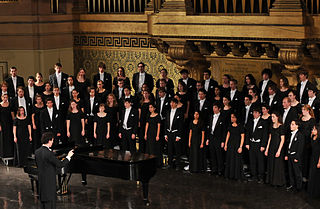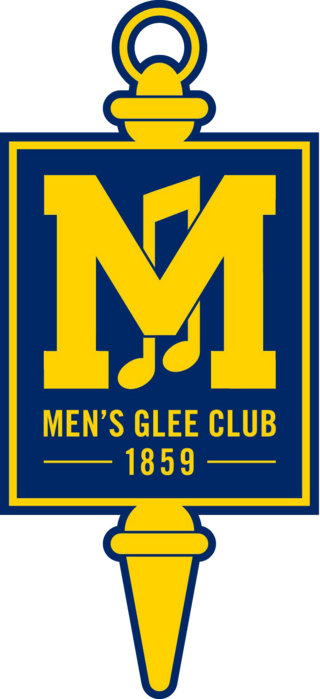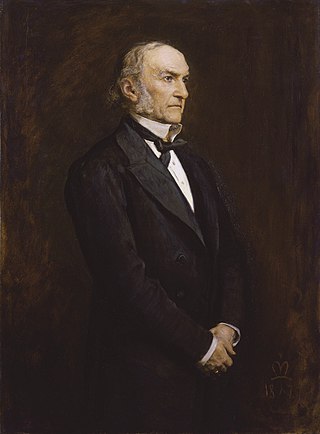
The Liberal Party was one of the two major political parties in the United Kingdom, along with the Conservative Party, in the 19th and early 20th centuries. Beginning as an alliance of Whigs, free trade–supporting Peelites and reformist Radicals in the 1850s, by the end of the 19th century it had formed four governments under William Gladstone. Despite being divided over the issue of Irish Home Rule, the party returned to government in 1905 and won a landslide victory in the 1906 general election.

Michael Mackintosh Foot was a British Labour Party politician who served as Labour Leader from 1980 to 1983. Foot began his career as a journalist on Tribune and the Evening Standard. He co-wrote the 1940 polemic against appeasement of Adolf Hitler, Guilty Men, under a pseudonym.

"On Ilkla Moor Baht 'at" is a folk song from Yorkshire, England. It is sung in the Yorkshire dialect, and is considered the unofficial anthem of Yorkshire. According to Andrew Gant, the words were composed by members of Halifax Church Choir "some 50 years after Clark wrote his melody", on an outing to Ilkley Moor near Ilkley, West Yorkshire. It is classified as numbers 2143 and 19808 in the Roud Folk Song Index.
The Land is a protest song, traditionally sung by the Georgist movement in pursuit and promotion of land value taxation. Its first appearance is from a Chicago Georgist publication, The Single Tax, in 1887 as The Land Song. Until the late 1970s it was sung at the end of each year's Liberal Assembly and was the party anthem of the Liberal Party, until that party merged with the SDP to form the Liberal Democrats. To this day it remains the de facto anthem of the Liberal Democrats, and is sung as the first song of the Liberal Democrats' Glee Club, at the twice-per-year Liberal Democrat Conference, and is the party anthem of the continuity Liberal Party. During the chorus, the phrase 'ballot in our hand' is accompanied by the collective waving of any paper to hand by the audience.

"Marching Through Georgia" is a marching song written by Henry Clay Work at the end of the American Civil War in 1865. The title and lyrics of the song refer to U.S. Army major general William T. Sherman's "March to the Sea" to capture the Confederate city of Savannah, Georgia in late 1864.

The Cornell University Glee Club (CUGC) is the oldest student organization at Cornell University, having been organized shortly after the first students arrived on campus in 1868. The CUGC is a thirty-nine member chorus for tenor and bass voices, with repertoire including classical, folk, 20th-century music, and traditional Cornell songs. The Glee Club also performs major works with the Cornell University Chorus such as Beethoven's Missa Solemnis, Handel's Messiah, and Bach's Mass in B Minor.

"(I'm a) Ramblin' Wreck from Georgia Tech" is the fight song of the Georgia Institute of Technology, better known as Georgia Tech. The composition is based on "Son of a Gambolier", composed by Charles Ives in 1895, the lyrics of which are based on an old English and Scottish drinking song of the same name. It first appeared in print in the 1908 Blueprint, Georgia Tech's yearbook. The song was later sung by the Georgia Tech Glee Club on The Ed Sullivan Show in 1953, and by Richard Nixon and Nikita Khrushchev during the 1959 Kitchen Debate.
This article contains detailed information on a number of student groups at Dartmouth College. For more information on athletic teams, please see Dartmouth College athletic teams. For more information on college publications, please see Dartmouth College publications.

The Yale Glee Club is a mixed chorus of men and women, consisting of students of Yale University in New Haven, Connecticut. Founded in 1861, it is the third oldest collegiate chorus in the United States after the Harvard Glee Club, founded in 1858, and the University of Michigan Men's Glee Club, founded in 1859. The Glee Club performs several concerts each year in New Haven and goes on tour each January. According to music critic Zachary Woolfe of the New York Times, it is "one of the best collegiate singing ensembles, and one of the most adventurous." Its members are "world famous for their harmonic precision" per New York Times music critic Robert Sherman.

The University of Michigan Men's Glee Club is an all-male glee club at the University of Michigan. With roots tracing back to 1859, it is the second oldest glee club in the United States and is the oldest student organization at the university. The club has won the Llangollen International Musical Eisteddfod on four separate occasions. Since 2018, the Club's musical director has been Mark Stover who has continued to expand the Club's repertoire and arranged performances.

Gladstonian liberalism is a political doctrine named after the British Victorian Prime Minister and leader of the Liberal Party, William Ewart Gladstone. Gladstonian liberalism consisted of limited government expenditure and low taxation whilst making sure government had balanced budgets and the classical liberal stress on self-help and freedom of choice. Gladstonian liberalism also emphasised free trade, little government intervention in the economy and equality of opportunity through institutional reform. It is referred to as laissez-faire or classical liberalism in the United Kingdom and is often compared to Thatcherism.
In music, a catch is a type of round or canon at the unison. That is, it is a musical composition in which two or more voices repeatedly sing the same melody, beginning at different times. Generally catches have a secular theme, though many collections included devotional rounds and canons.
The Purdue Varsity Glee Club is one of the principal vocal groups of Purdue University. It sings a wide variety of music comprising novelty, patriotic, classical, inspirational, jazz, pop, and barbershop genres. The group currently consists of roughly 60-70 tenors and basses, includes a live accompanying band, and is one of six ensembles associated with Purdue Musical Organizations. In the fall of 2018, the Purdue Varsity Glee Club celebrated its 125th anniversary.
"Bright College Years" is one of the traditional songs of Yale University, and the university's unofficial but undisputed alma mater. It was written in 1881 by Henry Durand and set to the tune of "Die Wacht am Rhein".
A glee club is a choir that specializes in singing short songs.

The Fabian Society is a British socialist organisation whose purpose is to advance the principles of social democracy and democratic socialism via gradualist and reformist effort in democracies, rather than by revolutionary overthrow. The Fabian Society was also historically related to radicalism, a left-wing liberal tradition.

The Georgia Tech Glee Club is an a cappella singing group founded in 1906 at the Georgia Institute of Technology. It is a student-run glee club currently directed by Dr. Jerry Ulrich. The Glee Club sings all original arrangements and compositions arranged by Dr. Ulrich and by members of the group.

The Ohio State University Men's Glee Club is an all-male choral ensemble at The Ohio State University. Officially founded in 1875, the Men's Glee Club is one of the oldest student organizations on Ohio State's campus and one of the oldest collegiate glee clubs in the United States. The group has garnered many accolades, most notably winning Choir of the World 1990 from the Llangollen International Musical Eisteddfod.

"The Red Flag" is a socialist song, emphasising the sacrifices and solidarity of the international labour movement. It is the anthem of the British Labour Party, the Northern Irish Social Democratic and Labour Party and the Irish Labour Party. It was formerly used by the New Zealand Labour Party until the late 1940s. The song is traditionally sung at the close of each party's national conference.













